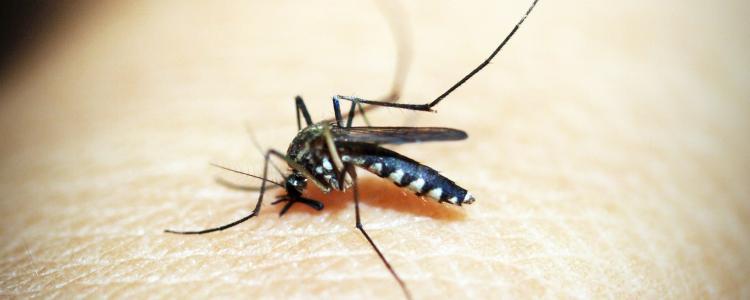Every year many travellers return to the UK with malaria, having acquired the disease in areas of Africa, Asia or Central/South America. Many of the people who contract this deadly disease put themselves at risk by not taking appropriate medication, or by taking it incorrectly, such as by not continuing to take the tablets after they have returned from their travels.
The twisted logic of thinking that since you are taking antimalarials you don’t need to take appropriate measures to avoid mosquito bites will also get you into trouble. When travellers take preventive anti malarials and consistently use insect repellents and mosquito nets, the risk of contracting malaria can be significantly reduced.
However, as one of our Clinic Assistants at Turnpike Lane has highlighted, even when taking the correct precautions, the risk of malaria is never completely avoidable.
It was ten days after her safari excursion that Linda started to feel deathly ill. She experienced an overwhelming sense of lethargy, was feverish, shivering and vomiting
Clinic Assistant Linda was volunteering in Uganda when she contracted malaria. Along with her fellow volunteers, she generously gave her time to help construct new classrooms at a school in Jinja and worked closely with the local children. She then decided to take some well-deserved time out from work for a safari experience in the bush. It was ten days after her safari excursion that Linda started to feel deathly ill. She experienced an overwhelming sense of lethargy, was feverish, shivering and vomiting. Linda was rushed on motorbike to a local hospital, where a finger-prick blood test confirmed the worst – malaria! Linda suffered acute anaemia due to complications and had to be hospitalised. It took quite awhile for her to feel fully recovered. Luckily, Linda had received the life-saving treatment she needed in time, before suffering any serious or long-term consequences. Sadly, this is not always the case with many people the world over who have the misfortune to contract this disease.
The symptoms of malaria can be quite generalised, including fever, chills, headache, vomiting, muscle aches and fatigue. These symptoms typically appear from 10-15 days after infection however, malaria parasites can lie dormant in the liver for months or even years afterwards. Consequently, many people return home from time spent in a malaria region and don’t experience symptoms of this deadly disease until much later, when they have returned to their normal lives and long forgotten about the malaria risk they were exposed to. For this reason, it is extremely important that travellers returning from a malaria region monitor their health and immediately report any possible symptoms to their GP or A&E department, explaining that they have recently visited a malaria risk area.
When planning to visit a malaria region, a consultation with a travel health specialist is essential to ensure you are protecting your health in the best possible way. The travel health nurses at Nomad Travel Clinics can provide you with expert knowledge on malaria prevention, and can also dispense the antimalarials you need for a safe, happy and memorable journey.


No Comments
Be the first to start a conversation